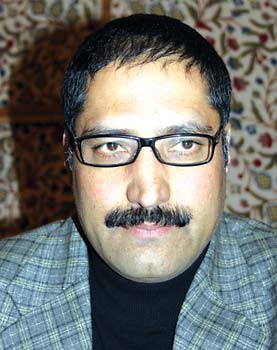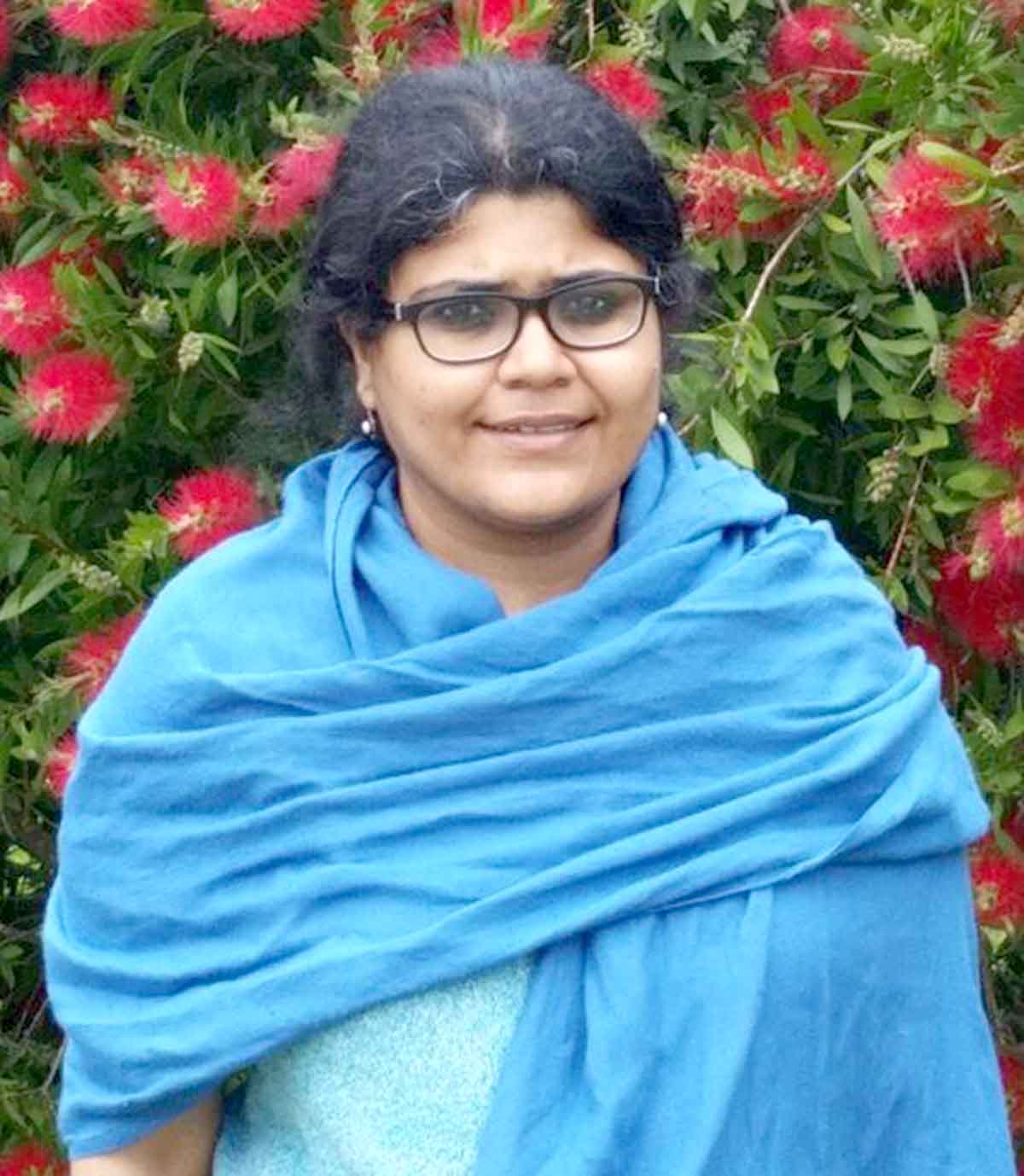by Swati Parashar
The calmness of a perfect summer day in Gothenburg (where I live and teach at the University) was shattered when I received the news that renowned Kashmiri journalist and activist, Shujaat Bukhari had been shot dead in Srinagar, outside his office and in the area of Lal Chowk that was his professional home. This was the most devastating piece of news from Kashmir in recent times, where death and mourning are not disruptions of the every day but normalized occurrences within which human interactions take place. It was a murder orchestrated with great precision and cowardice, bringing immense sorrow to his friends and family.

Shujaat Bukhari
Meeting Shujaat a decade ago and now writing this obituary reflects the extent to which death haunted our exchanges, literally and metaphorically. The sheer cruelty of fate that has taken away a man in the prime of his life with so much to contribute to Kashmiri society and politics! He had survived abduction, gunshots, stroke and personal tragedies to be murdered most brutally and brazenly in an area which was easily his comfort zone. Nothing makes sense in the world of violence and cruelties we inhabit.
Shujaat was a towering personality in the Kashmiri human-scape of journalists, who published fearlessly, and peace builders/activists who annoyed all stakeholders of the conflict equally. More capable commentators have already written about his journalistic achievements, so here I want to reflect on his poetic self, his kindness and generosity when I was a young, inexperienced researcher in Kashmir. I met Shujaat in 2008 when I went to Srinagar to do some fieldwork on my PhD research project. He was with The Hindu newspaper then and his office in Press Enclave in Lal Chowk was often an afternoon or evening hangout place where we discussed life and work over cups of nuon chai. He was restless then, after having miraculously escaped from that terrible incident of abduction and shooting in 2006, and perhaps poetry offered him a world of solace and meaning.
While discussing the day’s events and particularly the deaths in the Amarnath Shrine Board agitation then, Shujaat would often break into Kashmiri and Urdu poetry. I marvelled at the fact that he had a couplet (sher) or poem for all situations and contexts. He helped me with contacts, resources and always had time for the most simplistic of questions. If I annoyed him, he was too polite to show. I observed his dedicated mentorship to the junior reporters and aspiring journalists, his commitment and affection for his dear friends and the great love with which he spoke of his family, his children and his father, in particular. Writing about Shujaat in the past tense is surreal.
We stayed in touch, often through social media interactions and I closely followed his writings and activist engagements. In recent years as my own thoughts and learnings on Kashmir have crystallized, there was scope for disagreement with his views, but always within the norms of civility and decency. One of the most difficult messages we exchanged was over the death of one of his closest friends’ wife who left for her heavenly abode most unexpectedly. She had been like a sister to me during my stay in Srinagar and I was absolutely devastated. Shujaat mourned her passing and was deeply pained by the sorrow of his dear friend and the two beautiful children who had lost their mother.
I am aware that I was not the only recipient of his kindness and generosity. Several researchers who have been to the Valley have made contact with Shujaat, who always had time and resources for anyone who wanted to understand the situation in Kashmir. Many friends in social media have spoken of their encounters with him and the help he provided to them. When I learnt about his death, I told my colleagues at the University of Gothenburg that if anyone there would have wanted to ever work on the Kashmir conflict and peace processes, I would have directed them to Shujaat, who was always the first stop for researchers in Srinagar. He had friends all over the world, particularly peace and conflict researchers, activists and the wider journalistic community. It is not a surprise that almost all international media have covered his assassination, including the largest daily newspaper in Sweden, Dagens Nyheter.
If the last few years of litigation, online trolling, threats and harassment were wearing him down, he showed no signs. His smiling photos at several conferences and peace initiatives he attended, dominated his social media profile. He was targeted by people on both sides of the border. Some Indians found him pro Pakistani, while Pakistanis found him doing India’s bidding on Kashmir. Some Kashmiris may have found his views unpalatable too.
Since he annoyed all stakeholders alike, one can safely conclude that he must have been doing something right to be perceived thus. Was Shujaat aware of the risks that he took and did he anticipate such an end to his life and mission? We shall never know.
It is extremely sad to see how a person who should have been a prominent voice of reason and responsibility in the future of Kashmir has been silenced in such a brazen and well-planned manner. Obituaries will continue to be written and people will remember their association with Shujaat and the kind deeds that he performed. We also know that the mourning will last maybe a tad longer but eventually, we will all move on, till another will meet the same fate in Kashmir. Fact is, a life has been taken away because someone decided Shujaat was better dead than alive among his people and with his beautiful family and circle of friends. Shujaat is no more because we have decided to live in a dark and dangerous world where the precarity of human life is the only eternal truth, where we have normalized death and violence over empathy and life.

Swathi Parashar
As we mourn his death and also think about the political implications of these kinds of murders, we must, as conflict and peace scholars, researchers, journalists and activists, rethink ways in which we can engage our worlds to make it more livable, kinder and easier. Shujaat’s death is devastating and unacceptable but like him, we must never give up hope that there are possibilities of better worlds with norms of civility, polite conversations, generosity of spirit, empathy for the suffering and above all poetry.
During the peak of the Amarnath agitation in 2008 when a number of people had died in the protests, Shujaat would often recite the following lines from Ghalib, about his fellow Kashmiris. The words have acquired a particularly poignant meaning after Shujaat, who had defied death several times, was embraced by it so cruelly.
Qaid-e-Hayaat o Band-e-Gham,
Asl Mein Dono Ek Hain
Maut Se PehleAadmi
Gham Se Nijaat PayeKyon?
(This prison called life and the sorrow captive in it,
In reality are one and the same
Before the very end (death),
How can then one get free from it?)
(Swati Parashar is Associate Professor in Peace and Development at the School of Global Studies, Gothenburg University, Sweden.)
from Kashmir Life https://ift.tt/2KxT2BG
via IFTTThttps://kashmirlife.net
No comments:
Post a Comment